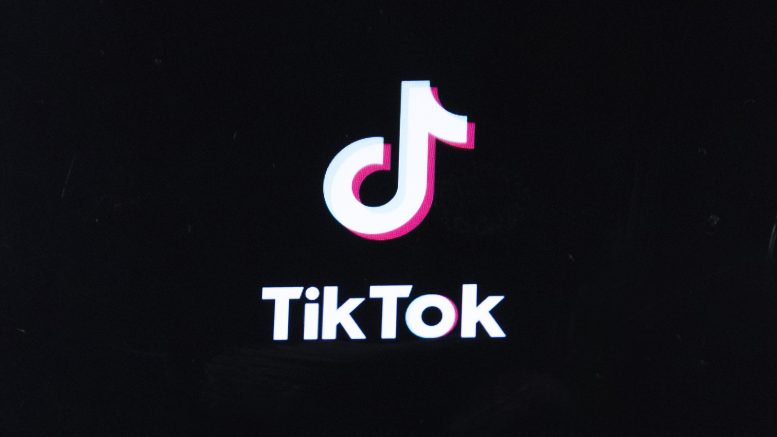Is this recording? Oh, okay.” (Cue awkward millennial pause — if you know you know). It’s unscripted moments like these, those relatable pauses we do in real life, that TikTok has transformed into a cultural phenomenon.
The emergence of TikTok took the world by storm. In the age of digital creation and marketing, a single video can teleport you to places you’ve never been before. With the magic of TikTok, anyone can go from obscurity to internet fame in minutes. The platform has made content creation more accessible than ever before. At the U of M, students are active contributors to these fast-emerging trends. Not only do they create and consume viral content, but they also act as trendsetters. From outfit check videos filmed on campus to quirky “day in the life” videos from international students, their content captures everyday experiences in raw and authentic ways. Whether it’s showing off an overpriced coffee from Starbucks or running late for class, these creators invite viewers into their lives.
TikTok has become a stage for these students — a global platform that extends beyond the university’s walls. But with the thrill of going viral comes a question, how do you balance staying true to yourself while still actively chasing these trends? Is it still you?
How TikTok became a global force
As of 2023, TikTok had more than 1.6 billion monthly active users. That’s about 19.5 per cent of the world’s population, which is approximately 8.2 billion people as of January 2025.
The app, launched in 2016 by Chinese company ByteDance, is now one of the most influential social media platforms in the world.
TikTok’s success lies in its ability to use data to create highly curated, personalized content through its “For You” page. By analyzing user preferences, the algorithm ensures an endless stream of engaging videos curated to each individual’s taste.
But the success of the app hasn’t come without controversy.
In 2023, TikTok CEO Shou Zi Chew faced a U.S. congressional hearing over allegations of data-sharing practices with the Chinese government. The trial highlighted the cultural and political consequences of a platform like TikTok, which has been deeply embedded in the lives of young people, like U of M students.
The hearing made news waves online, birthing the most hilarious memes, with hashtags flying around the web like #freeourCEO. It was funny to witness.
Despite these challenges, TikTok still remains a cultural powerhouse.
The impact of TikTok on campus life
TikTok’s influence is evident on campus, from viral trends like the “30 days outfit challenge” to study hacks for cramming before exams. U of M students are both consumers and creators of these trends.
Take for example, a video by an international student documenting “30 days of no skipping classes.” Videos like these inspire viewers, creating a sense of community and shared experience. University clubs and societies also use TikTok to connect with students, further fostering a sense of belonging.
However, TikTok’s influence is not always positive. The pressure to chase trends can sometimes lead students to lose sight of their individuality and creativity. In the quest of chasing a viral moment, it’s easy to get lost in the crowd.
And on top of that, you know what’s wild?
A study from the University of Minnesota found that TikTok, which so many of us turn to for mental health tips, might be messing with our heads even more. The problem is that TikTok’s algorithm doesn’t know when to chill. Once you start looking up mental health content, your “For You” page gets flooded with it — and for some people, that’s not always a good thing. Vulnerable users can end up seeing triggering content repeatedly, even when they don’t want to.
Personal reflections on TikTok
Like many students, I once dreamed of becoming an influencer. My page, @jbaaliyah, was my shot at standing out in a sea of creators. My most successful video, “What people wore at U of M: First week,” from 2022, highlighted the diversity of campus life. While many viewers loved it, others raised privacy concerns — even though I made sure to ask for consent before filming.
Then came the anxiety.
I’d feel a wave of nerves every time I posted, worrying about whether people would interact with my page or how many likes I’d get. Staying authentic in my content became a constant struggle.
My experience with TikTok showed me both its incredible ability to connect people and the anxiety that comes with being in the spotlight. Even as likes and views climbed, I felt overwhelmed and started to question if I’d done something wrong.
So, should I delete TikTok?
If I am being honest, the answer isn’t black and white because people react to the app differently. Trends may be fleeting, especially in this generation, but individuality is timeless, especially for content creators. Authenticity will always win. Stay true to yourself, never lose sight of who you are and embrace collaborating with like-minded creators as this can open new opportunities.
That said, it’s important to prioritize your mental health while in the spotlight. Taking breaks when needed, setting boundaries and reminding yourself that your value isn’t defined by likes or views can make a big difference. Balance creativity with self-care!


